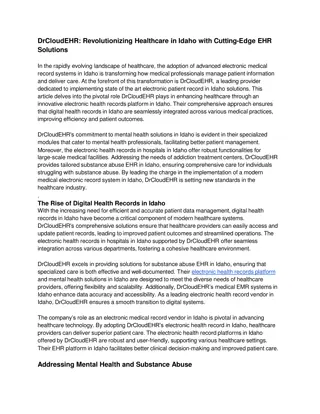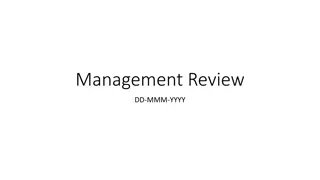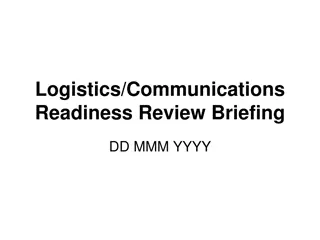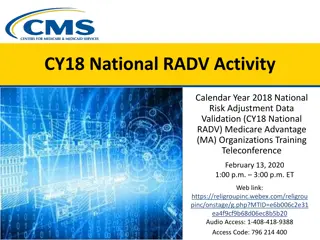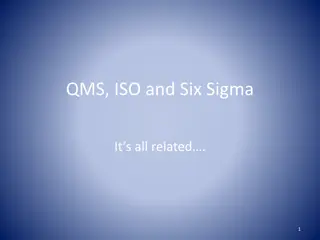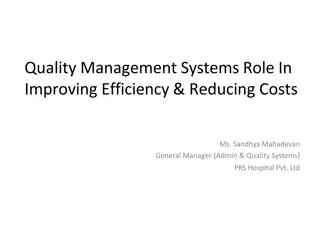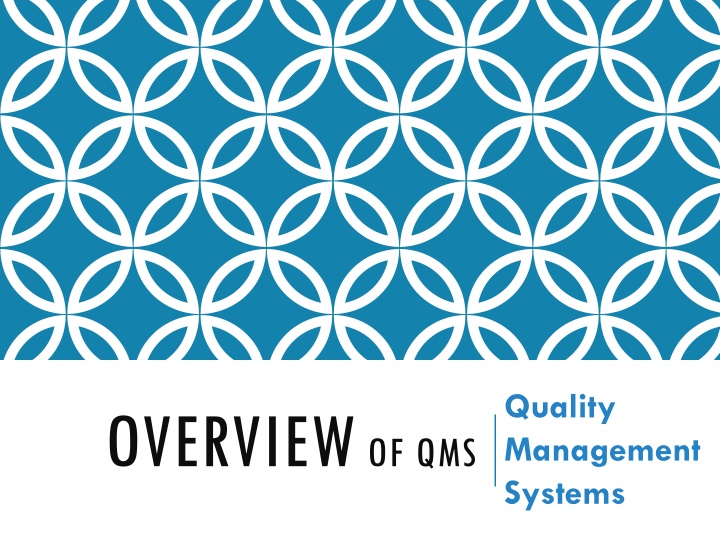
Importance of Quality Management Systems in Laboratories
Learn why establishing Quality Management Systems (QMS) is crucial in laboratory settings to avoid errors and ensure efficient patient services. Explore the necessity, solutions, and standardization associated with QMS models like ISO and CLSI guidelines.
Download Presentation

Please find below an Image/Link to download the presentation.
The content on the website is provided AS IS for your information and personal use only. It may not be sold, licensed, or shared on other websites without obtaining consent from the author. If you encounter any issues during the download, it is possible that the publisher has removed the file from their server.
You are allowed to download the files provided on this website for personal or commercial use, subject to the condition that they are used lawfully. All files are the property of their respective owners.
The content on the website is provided AS IS for your information and personal use only. It may not be sold, licensed, or shared on other websites without obtaining consent from the author.
E N D
Presentation Transcript
Quality Management Systems OVERVIEW OF QMS
WHY DO WE NEED TO HAVE QMS IN A LAB? To avoid any error or any mismanagement in laboratory during patient services we need to establish QMS
WHAT IS THE SOLUTION? LABORATORY QUALITY MANAGEMENT SYSTEMS
STANDARDIZE, SYNCHRONIZE Competency and efficiency of lab staff Environmental Conditions Quality of reagents and equipment. Pre- analytical, analytical and post analytical processes Quality control procedures Advocacy Services Resolution of complaints Procedure of documentation and record keeping
QMS MODELS (ISO & CLSI) ISO Standards CLSI Guidelines (International Organization for Standardization) (Clinical and Laboratory Standards Institute) -GP26 (Application of Quality Management System Model for Laboratory Services) -ISO 15189 (Laboratory Quality and Competence) ISO 9001 (QMS) + ISO/IEC 17025 (Competence of Testing) -Specific Guidelines for each QSE Followed in India for Accreditation of Laboratories
Quality As per ISO definition quality is the degree to which a set of inherent characteristics fulfils requirements Competence As per ISO definition competence demonstrated ability to apply knowledge and skills

![❤[READ]❤ Deep Space Craft: An Overview of Interplanetary Flight (Springer Praxis](/thumb/21511/read-deep-space-craft-an-overview-of-interplanetary-flight-springer-praxis.jpg)



